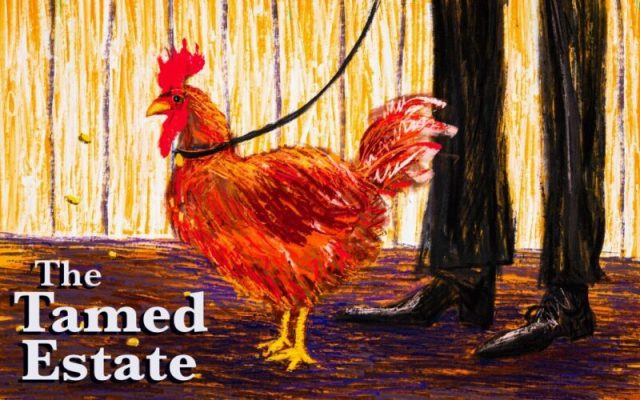The arrest of a producer of YouTube journalist and comedian FriendlyJordies has disturbing implications for free speech and civil liberties. That a counter-terrorism unit would be sent in to arrest a government critic has eerie parallels to repressive regimes around the world, writes Michael Tanner.
“Are we so different from Russia, or China, or Belarus?”
These were the final words of an article we published last year, documenting the ongoing stoush between YouTube journalist, comedian and government critic FriendlyJordies and NSW Deputy Premier John Barilaro.
At the time, Belarus was engulfed in protests following the theft of an election by the ruling dictator Alexander Lukashenko. Alexei Navalny, a prominent Russian dissident, was in hospital following an attempted poisoning by government agents with the nerve agent Novichok.
The story in Australia was the failure of the mainstream media to hold the government to account. Faced with allegations of corruption by a senior elected official on one hand, and colourful commentary about said official on the other, the media narrative was all about the commentary. The media saw FriendlyJordies as a “problem” to be “solved”.
During the intervening months FriendlyJordies has continued his criticism of Barilaro. The media has continued its criticism of Jordan Shanks. And Barilaro has let fly with a defamation lawsuit, which, interestingly, was sent to media outlets including The Australian and The Guardian before FriendlyJordies was even served. A move to garner maximum media attention?
But in early June, a concerning situation became deeply troubling. The producer of FriendlyJordies videos, 21-year-old Kristo Langker, was arrested at his home by plain-clothes members of the Fixated Persons Unit, which is linked with the Counter Terrorism and Special Tactics Command, before being taken into an unmarked vehicle. Langker has been charged with “stalking and intimidation”.
Chilling description of a journalist
The Fixated Persons Unit was set up in April 2017 before the release of the findings of the inquiry into the Lindt café siege, where 18 people were held hostage and two people died. The Unit ostensibly seeks to identify, and prevent attacks by “fixated” people, often those marginalised by society who might be at risk of being seduced by extremist groups.
The Unit is intended to deal with “people who aren’t classified as terrorists but are so obsessed about issues, ideals or individuals, they are plotting acts of violence”.
That a journalist trying to hold the powerful to account would come under the description of a “fixated” person is “chilling”, says Mark Davis, the five-time Walkley-winning journalist and now partner at Xenophon Davis, who is representing Langker.
“As citizens, we all signed up to counter-terrorism laws when they were thrust before us and pushed through parliament,” he said.
“FriendlyJordies are comedians but they are also very solid journalists on politics, corruption and abuse of power.”
He said the use of these units for such a “trivial purpose” was “nothing less than chilling”.
Davis also described Langker’s bail conditions as “utterly extreme”, as he will be in breach of them if he so much as possesses “an image or caricature of the Deputy Premier or if he comments upon the appearance or behaviour of the Deputy Premier”.
Shooters, Fishers and Farmers MP Helen Dalton was also concerned about the arrest, stating that “the implications for free speech and civil liberties are extremely disturbing”.
The arrest happened mere hours after an encounter between Barilaro and Langker. The FriendlyJordies team has described it as a chance encounter, with video footage appearing to support that description.
The police, in contrast, claim that Langker followed Barilaro for 200 metres and called him “corrupt”. Neither of these claims accords with the available footage. Mr Davis has described the police claims as “misinformation”.
NSW police in the business of harassment?
Of late, the NSW police have been too often in the news for harassing members of the public, not protecting them.
Ms Dalton has lamented the fact that women in NSW who have suffered domestic violence would “tell you how difficult it is to get their perpetrator charged and arrested”.
In late 2020, the Law Enforcement Conduct Commission (LECC) revealed “systematic failures” in workplace bullying in the NSW police force, including a series of complaints including “harassment” raised against a senior commander.
The LECC also found that a NSW police blacklist, disproportionately featuring Indigenous children thought to be at risk of offending, was “harassment” and “unreasonable surveillance”.
And then there’s the unlawful strip-searches. And the two NSW officers who “harassed and intimidated” a solicitor representing a man involved in a motorcycle gang.
Yet when Deputy Premier John Barilaro is faced with the kind of public confrontation we have come to expect as matter of course from journalists from A Current Affair, within hours charges are written up and a raid of an alleged perpetrator’s house takes place.
Neither the NSW Police’s office nor the Police Minister’s office had responded to questions by the time of publication.
Eerie parallels to repressive regimes
That a counter-terrorism unit would be sent in to arrest a government critic has eerie parallels to repressive regimes, from Pinochet’s Chile to Donald Trump’s government during the Black Lives Matter protests, when federal officers dressed in camouflage grabbed individuals off the street and bundled them into unmarked minivans.
But the similarities to Belarus, Russia, and China are most concerning, and prescient.
Upon recovering from his poisoning, Alexei Navalny returned to Russia, where he was arrested on trumped-up charges and jailed for 3 ½ years.
The exiled Belarussian government critic and journalist Roman Pratasevich was forcibly removed from a plane after it was diverted by a government jet to Belarus.
And the list of jailed critics in China is long, but there’s no better example than the pro-Hong Kong democracy activist who was recently jailed for participating in a vigil on the anniversary of the Tiananmen Square massacre.
The methods at play in NSW, and Australia more broadly, are more subtle, but are comparably insidious and just as dangerous to a free and open democracy.
From the threats to deregister charities whose supporters take part in political campaigning; to the war against, and support to defund, the ABC; to prosecuting whistle-blowers such as lawyer Bernard Collaery and Witness K, the arrest by a counter-terrorism unit of a government critic in their own home surely signals an escalation.
The bare facts of this development should send a shiver down the spine of anyone concerned with freedom of the press, let alone our democracy.
Holding comedians to account: Nine and News miss John Barilaro, hit Friendlyjordies instead
Michael Tanner is completing a Doctor of Medicine/Doctor of Philosophy. His writing explores the intersection of economics, the media and public health. His writing has also been published in The Age.

